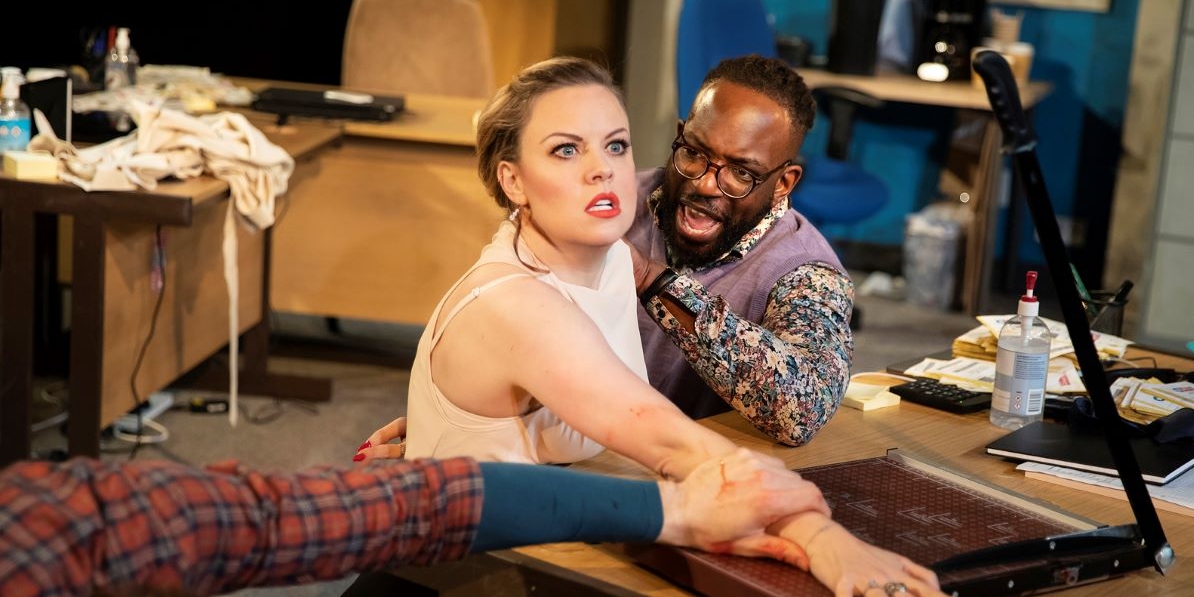This new comedy comes to the Southwark Playhouse after a successful run back in the USA, but overall it is a struggle to find much merit in it, other than in the heroically energetic efforts of a talented cast, and an impressively detailed set design.
The main problem is that the playwright seems divided between viewing the play as an exploration and interplay of characters in an office-based drama of the kind associated with David Mamet or developing a vigorous farce akin to ‘Noises Off’ or ‘The Play That Goes Wrong. Failure to decide between the two ensure that it truly works as neither. The first half seems interminable as we accumulate more and more details about the unappealing group of office workers suffering under the oppression of a bullying and sarcastic boss from hell; and then the helter-skelter pace of the second half makes little use of what has been painstakingly put in front of us, instead substituting an orgy of technically impressive but inauthentic rivalrous violence.
We find ourselves in an office devoted to inputting data where boss Glenn is forever dissatisfied with the work of his employees, all of whom resemble recognisable stereotypes. There is a hapless but well-meaning drunk, a diligent evangelical Christian fond of quoting the Bible, an office manager who is getting on in years and over-compensating in her loud behaviour, an unconfident colleague trapped in an unhappy marriage, and a new arrival of apparently awesome ability and social standing who may be the manager’s spy. Everyone is unhappy but unable to break free until the possibility of a group pitch to win the lottery emerges.
All of the characters are well delineated by the cast, accents are impeccable, and the actors navigate the spatial challenges of a cramped set, many props, and complicated stage business with aplomb. In particular, Gabriel Paul in the role of Galvan plays a crucial part in trying to make the joint lottery project plausible by a virtuosic presentation of a vision of success which has to convince the audience as well as his co-workers. If this does not carry through credibly then the problem lies with the writing and not with the acting.
The second part of the play operates on the assumption that the prospect of vast riches will destabilise all these relationships, substituting suspicion and distrust for collegiality. Each cast member in turn comes under suspicion of trying to keep the winning lottery ticket for their own unique benefit and violent acts to extort the truth accumulate in a fairly distasteful and ultimately unfunny way, largely because none of this seems very likely on the basis of what we have learned before. To work, farce has to be plausible, or on the edge of a believable or possible reality. This sequence does not reach that standard despite bravura performances from all the actors, especially the hideously sadistic boss, Glenn, played with a gleeful intensity by Jack Bennett, something of a ‘diabolus’ rather than ‘deus ex machina.’ There are some intriguing final plot twists, but they come too late to save the evening overall. The fight director, Dave Nolan, deserves credit though, given the amount of conflict there is.
While this is a long and ultimately somewhat frustrating evening there are some points of acute psychological observation, a few good laughs and a lot of technically adept acting on offer.

